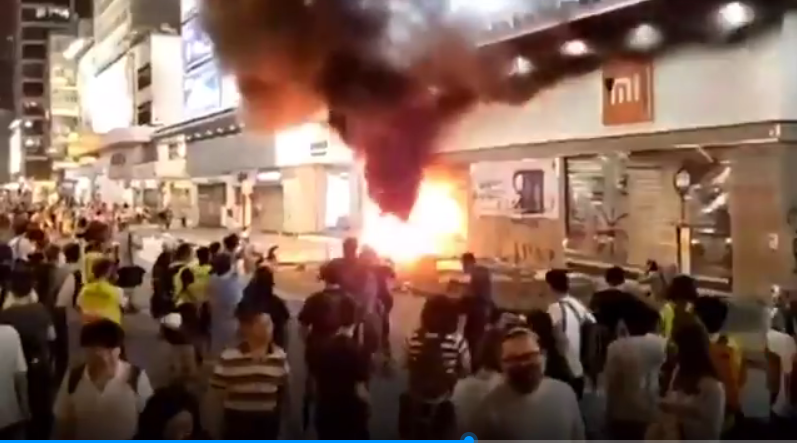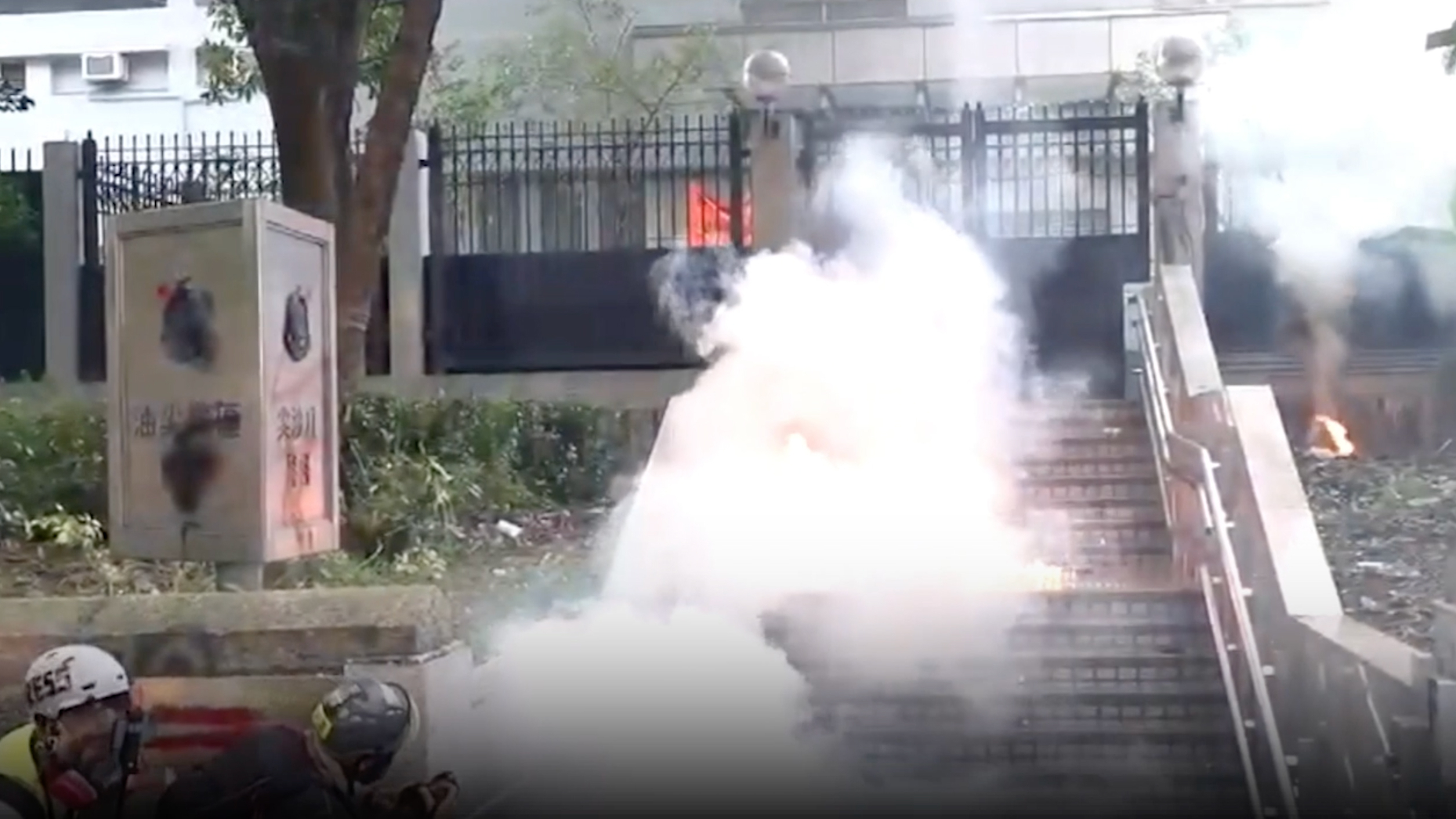00:21

Editor's Note: Tom Fowdy is a British political and international relations analyst and a graduate of Durham and Oxford universities. He writes on topics pertaining to China, the DPRK, Britain, and the United States. The article reflects the author's opinion, and not necessarily the views of CGTN.
Over the past few weeks, the events in Hong Kong have taken a new direction. That is, a relentless campaign to destroy and attack any business which is deemed affiliated with the Chinese mainland. On Sunday night, after barricading the main streets and smashing up traffic lights, protesters took to central Kowloon's Tsim Tsa Tsui and proceeded on a rampage against what they deemed to be Chinese mainland affiliated businesses.
Protesters targeted multiple Bank of China branches, ripping out ATMs, flooding the inside and smashing the windows. Famous Chinese mainland brands such as Xiaomi, as well as several prominent bookstores were also attacked. The sheer hysteria of the attacks also resulted in some businesses being wrongly targeted.
These events demonstrate the all-embracing hatred of which Hong Kong activists hold towards the Chinese mainland, which goes beyond political issues. It is not a call for dialogue; it has far exceeded all tangible reason and human common sense. Driven by the mantra of Hong Kong exceptionalism, they wish to establish Hong Kong as something completely distinct from the Chinese mainland, and will not stop until all deemed "influence" of Beijing is removed from the city. This also helps us understand why the United States is supporting it.
The most radical activists at the heart of the protest movement believe firmly that Hong Kong should be completely and utterly distinct from the Chinese mainland. The existence of the city as a separate colonial space has exacerbated a lingering belief and nostalgia that the city is exclusive and that it should remain that way. This has created anxiety as the territory was returned to China and thus played an increasingly prominent role in life. As a result, this notion of "Hong Kong exceptionalism" manifests a belief in a cultural, political and social superiority to the broader belonging of "China" and in turn, resists it.

On October 20, a large group of protesters blocked carriageways in the vicinity of Tsim Sha Tsui. /CGTN Photo
On October 20, a large group of protesters blocked carriageways in the vicinity of Tsim Sha Tsui. /CGTN Photo
This is a phenomenon that has existed long before the unrest in the territory; residents have shown contempt for "mainlanders," stereotyping them as backwards and socially ostracizing them. As a result, although Western media have repeatedly sought to frame these activists as merely fighting for the city's autonomy and universal suffrage, they continually neglect how they are being driven by this sentiment of identity which in turn seeks to forcefully expel the city's association with Beijing on a level by which far exceeds political preferences.
As a result, this sentiment has now taken the form of an all-embracing hatred and campaign of unrestrained violence against everything associated with the Chinese mainland, thus showing it not to be a set of mere grievances against the city's authorities. The protesters are openly targeting banks, businesses, brands and other institutions deemed to associated with the Chinese mainland while flags and banners are also destroyed and anyone speaking Mandarin is attacked, regardless of whose side they are on. In doing so, they illustrate that they have little appetite for compromise and that a campaign of terror is completely acceptable. It is mindless and irrational.
Of course, this builds into the broader connotations as to why Washington is supporting the movement. If the activists were to completely get their own way, it would legitimate a tidal wave of anti-China populism in the view to removing any ties to Beijing from the city. This in turn would accumulate in the construction of Hong Kong as an "anti-China periphery" that is a part of China whereby the local authorities are openly hostile and antagonistic to the country as a whole, following U.S. foreign policy objectives and disowning any unity whatsoever.
As a result, while the Western media will not portray this movement for what it really is, we must treat it as "The Black Terror" – a movement which is not driven by benevolent political goals or aspirations, but a pure hatred of China, and an overwhelming impulse to pursue mindless, senseless and sporadic violence against everything that stands in its way, regardless of what its disposition might actually be.
If people believe that ordinary residents, business owners and others deserve this kind of malign treatment on the back of indirect political grievances, then too they have lost their moral compass just as much as the culprits themselves. It's time to stop idealizing these acts of criminality.
(If you want to contribute and have specific expertise, please contact us at opinions@cgtn.com)